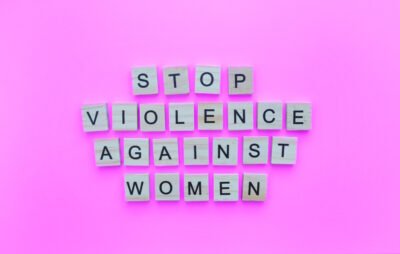Safety never comes from cruelty. One of the strongest predictors of future abuse is past abuse. Men who have harmed partners before are likely to re

Safety never comes from cruelty. One of the strongest predictors of future abuse is past abuse. Men who have harmed partners before are likely to repeat the pattern—because abuse is not about a “moment of anger,” but a mindset of entitlement and control.
Here are ten truths about men who have been violent in relationships, and how their patterns spill into workplaces and public life.
1. Past violence predicts future violence.
Research and lived experience show this again and again: men who abuse once are much more likely to abuse again. This is not a “phase.”
2. They minimize and excuse their actions.
Violent men often reframe abuse: “It wasn’t that bad,” “She pushed me,” “We just argued.” Minimization is part of the cycle.
3. Changing partners rarely changes patterns.
Without deep accountability and intervention, a new relationship simply means a new victim.
4. They can be charming in public.
Many abusers are skilled at masking cruelty with charisma. At work, in church, or in community spaces, they may seem likable, respected, even admired.
5. They often target people with less power.
In workplaces, this can mean belittling interns, ignoring junior staff, or bullying colleagues who can’t fight back. The same instinct to dominate shows up everywhere.
6. They undermine women subtly.
Cutting women off in meetings. Taking credit for others’ work. Mocking, rolling eyes, or using “jokes” to humiliate. Abuse in relationships and disrespect in workplaces grow from the same root.
7. They resist accountability.
Rules and policies are treated as obstacles to dodge. If confronted, they deflect: “It’s politics,” “She’s too sensitive,” or “Everyone does this.”
8. Anger and control become tools.
Explosive anger at home often translates to intimidation in public spaces. Colleagues notice: the room changes when he enters. People walk on eggshells to avoid “setting him off.”
9. Entitlement follows them everywhere.
Violent men carry the belief that others exist to serve them—whether it’s partners at home, coworkers in the office, or subordinates in organizations. The setting changes, but the entitlement doesn’t.
10. Quick apologies are performances, not change.
“I’m sorry” comes easy if it means keeping a job, a reputation, or a relationship. True change requires long-term accountability, not surface-level remorse.
Final Word
Violence at home and disrespect in public are not separate issues—they are symptoms of the same disease: entitlement, control, and a refusal to honor others. If a man has a history of harming women, children, or vulnerable people, believe the pattern, not the promise.
Real protectors are not cruel at home and polished in public. Real protectors are consistent: safe, respectful, and trustworthy in every space.